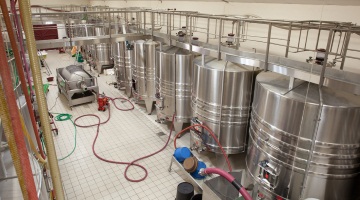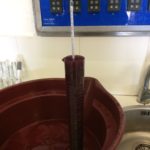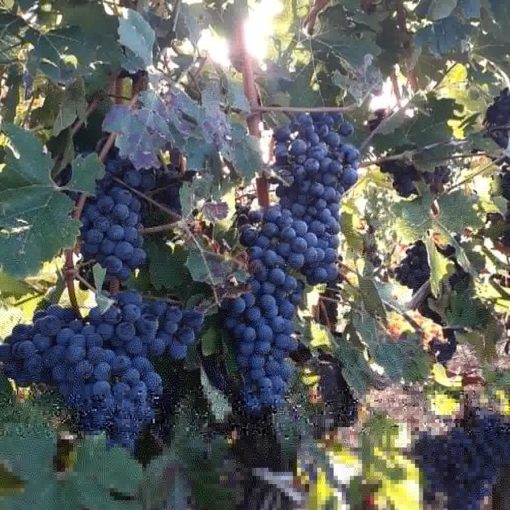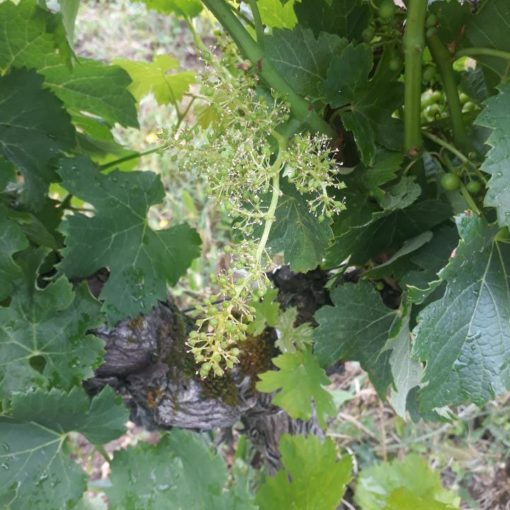This year, the harvest started early at the Musset and Chêne-Vieux estates! After placing the harvested berries in the tanks, the alcoholic fermentations also began in our temperature-controlled stainless steel tanks.
Alcoholic fermentation is the biochemical process during which yeast transforms the sugar from the grapes into alcohol, releasing carbon dioxide and heat. These yeasts (saccharomyces type) work efficiently between 15 and 30°C and die off beyond this temperature, halting the fermentation. Therefore, the temperature of the must should not exceed 30°C. Given the heat produced during fermentation and the current outside temperatures, a temperature control system is essential.
The fermentation takes place in our temperature-controlled stainless steel tanks. Oak barrels are only used later, during the wine aging process. Our stainless steel tanks contain a thermometer and rings integrated into a double wall where a heat-conducting fluid circulates, which can be either hot or cold, controlled electronically to maintain the desired temperature. This system is crucial because stainless steel, without this device, has no thermal inertia.

Another consequence of alcoholic fermentation that we must manage is the expansion of the must due to the rise in temperature. Therefore, it is necessary not to fill the tanks completely, as they might overflow! Our winery has twice the volume required for the harvest.

The alcoholic fermentation, which ends when the yeast has transformed all the sugar into alcohol, lasts 10 to 14 days at our estate. To monitor its progress, we use a mustimeter multiple times a day, an instrument that measures the density and temperature of the must. This density is directly linked to the sugar and alcohol concentrations, and the mustimeter allows us to check that the sugar concentration gradually decreases until it reaches less than 2g/L, at which point alcoholic fermentation is considered complete.
The alcoholic fermentation of the Merlot at Musset has finished, while it has just started at Puisseguin. This 2020 vintage seems promising… To be continued!




One thought on “September 2020”